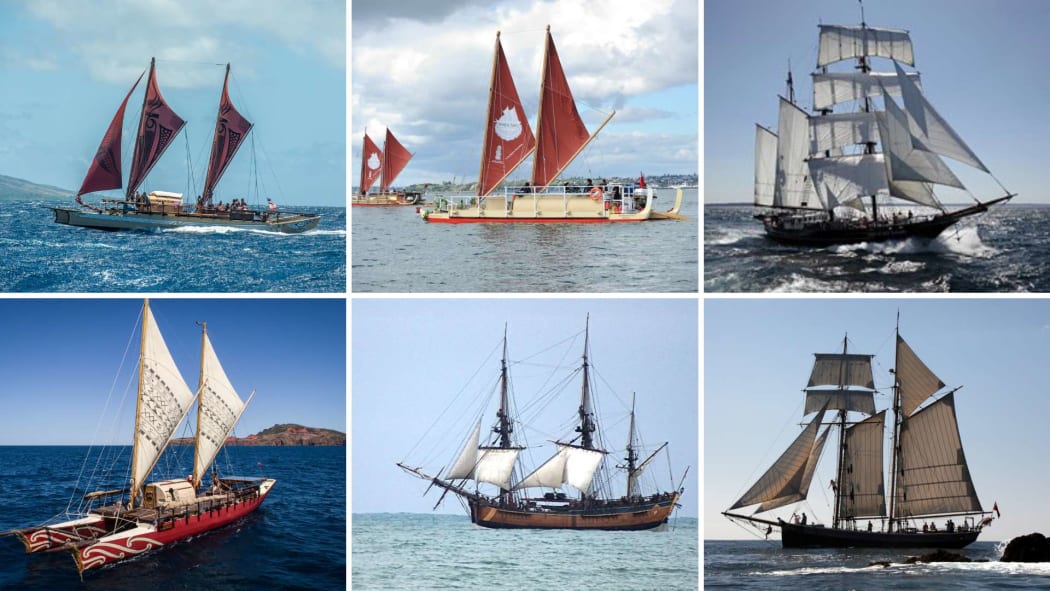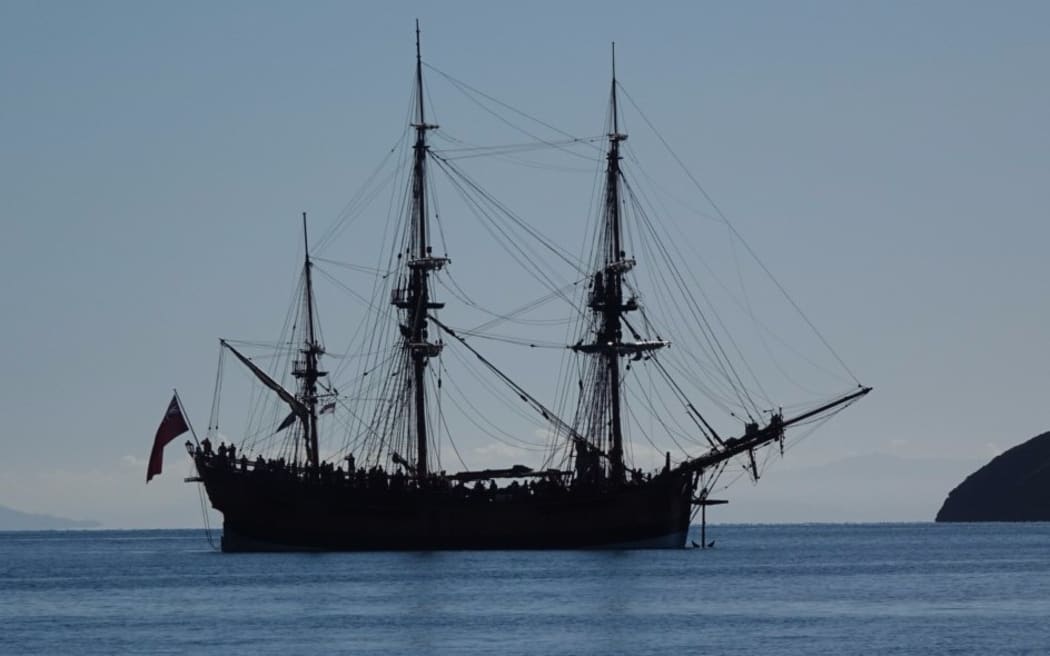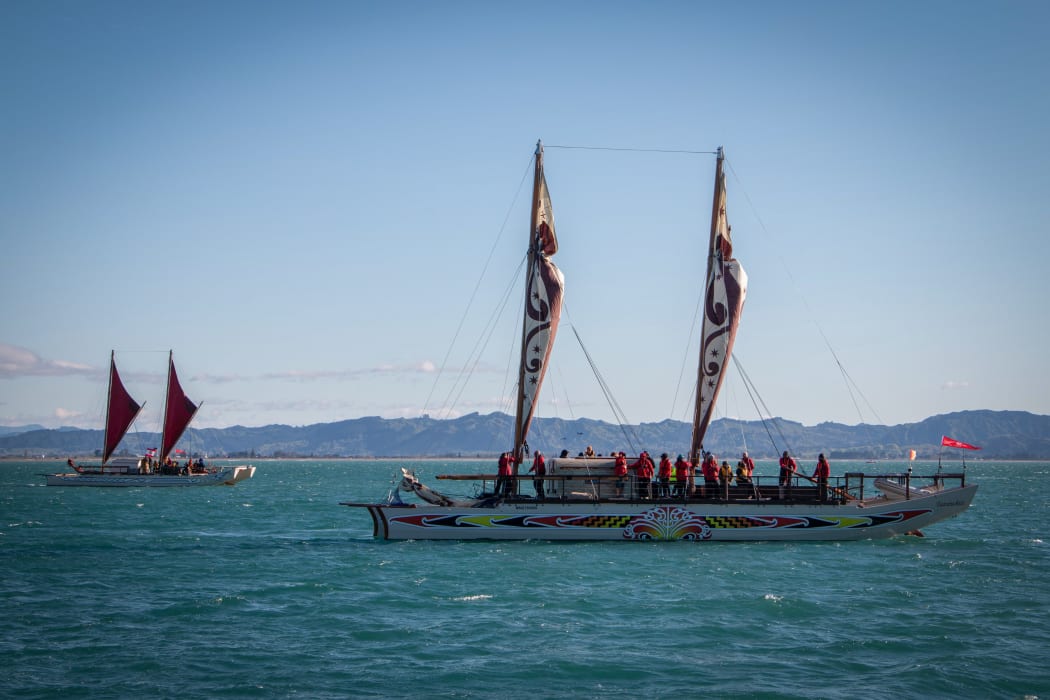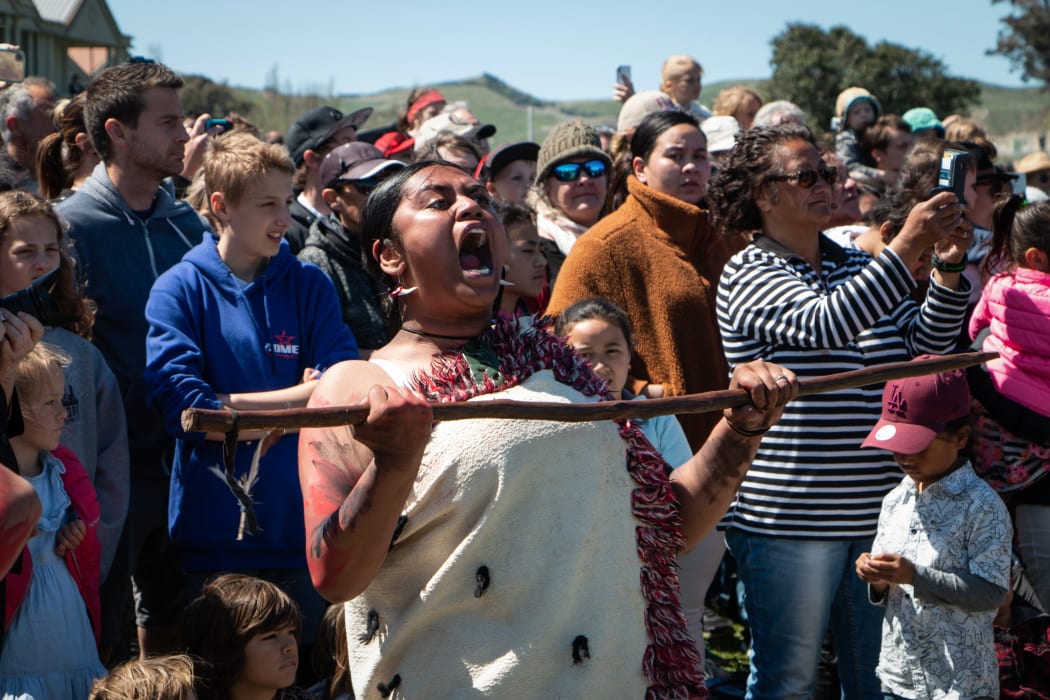Dame Jenny Shipley, the Tuia 250 co-chair, says the programme has been a huge success which has created a shift for people to embrace the country's bicultural history.

The six core vessels of the Tuia250 fleet. Photo: Ministry for Culture and Heritage
The Tuia 250 voyage of the replica of James Cook's Endeavour, supported by a flotilla of vessels, will complete its 10-week journey around the country this weekend, finishing up in Māhia on Sunday.
The voyage commemorates 250 years since Cook and Tahitian chief and navigator Tupaia arrived in 1769, and it also recognises the Pacific voyagers who reached Aotearoa many years earlier.
A closing ceremony will take place at Rua-huru Marae in Māhia on Tuesday.

The Endeavour replica in Ship Bay in Marlborough Sounds. Photo: RNZ/ Tracy Neal
Dame Jenny Shipley, who is the Tuia 250 co-chair, told Morning Report that thousands of people have visited the vessels and tens of thousands have watched from shore.
"From watching it and being close to it I think it has created an unstoppable shift, in terms of embracing our bi-cultural and bi-dual history.
"People are genuinely interested - they don't just want to have the potted historic experience.
"They want to live the experience and Tuia 250 offered that with its six vessels and people could look and see the New Zealand story and understand where their story sat."
Shipley said the other key aspect was the UK High Commissioner Laura Clarke's expression of regret. This allowed people to think differently.
"People were willing to have uncomfortable conversations and this is the breakthrough in terms of not having to have an argument but rather to listen carefully and take on board the other perspective."

Part of the flotilla arrives in Gisborne. Photo: RNZ / Meriana Johnsen
Pou mark arrival of Māori
Some iwi, especially in the Far North did not welcome the Endeavour, however, 19 iwi and hapū around New Zealand had held welcoming ceremonies for the crews, Shipley said.
Tahitian crew on the Fa'afaite had been a huge part of the project and taught New Zealanders a lot of things they did not know before.
She said while Cook was important as a navigator and explorer he did not discover New Zealand.
On two occasions in the Bay of Islands and Marlborough there were important ceremonies held that acknowledged Māori arrived here probably around 1290.
These are carbon-dated sites not myth or legend, she said. Beautiful pou (wooden posts) have been placed on these islands so that New Zealanders can have a fuller understanding of their history.
"If you go to Whitianga today and go down to the waterfront below the marae, there is now on the border of DOC land and the marae the most beautiful pou that commemorates Tupaia and also tells the story of the tribe and these things weren't before.
"So the goal of Tuia wasn't to glorify anybody but to rebalanace New Zealand's story so it tells a genuine history of who we are."
She said with children set to learn this history in school as well, it was "a beginning not an ending in terms of the Tuia spirit and what we've still got to achieve as a country".

While some iwi opposed Tuia250, others welcomed it as on this occasion on the beach in Gisborne. Photo: RNZ / Meriana Johnsen

